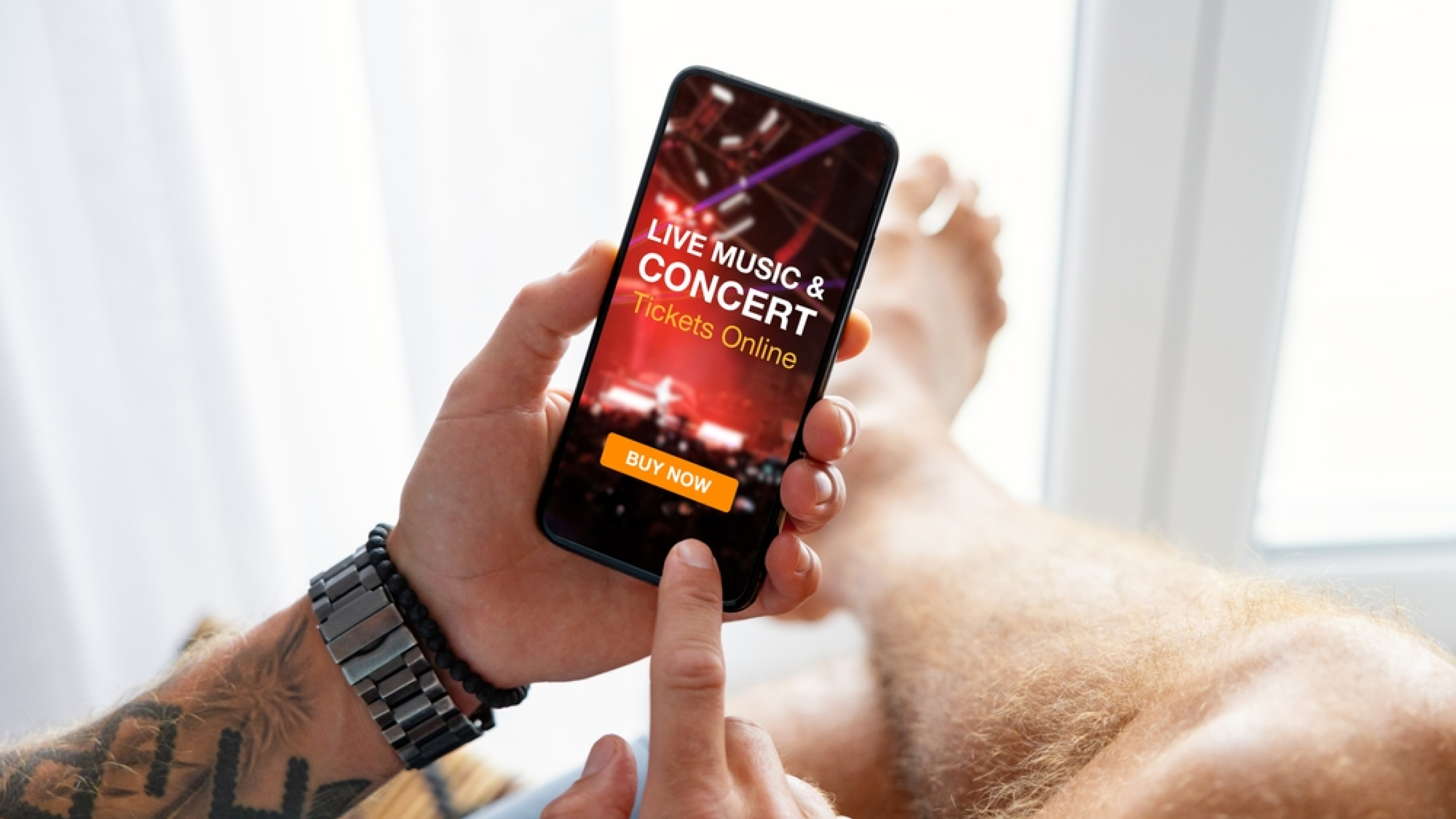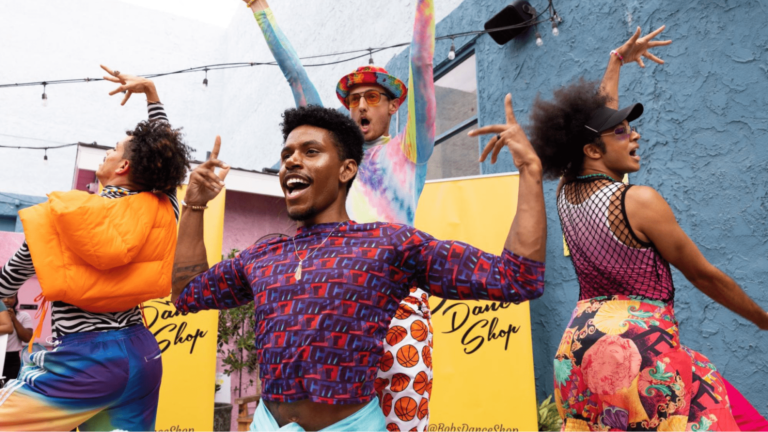With so much choice, there are a lot of events out there competing for people’s attention.
Everybody’s got a great idea — and some big events have huge marketing budgets to compete with.
If your pockets aren’t quite as deep, you’ve got to play it smart when you deploy your online promotional strategies — you want to make your event stand out and not break the bank.
Don’t know where to start? Don’t worry; we’ve got you covered.
At Eventbrite, we support a community of almost 800,000 event creators — so to help you get started, we’ve handpicked 12 top tips that are sure to help you sell more tickets.
Table of Contents
3. Create content that tells a story
4. Craft an event page that sells
5. Use retargeting to seize the moment
6. Use sites where you can advertise events for free
7. Collaborate with social media influencers
8. Promote your event using pay-per-click ads
9. Create a social media event contest
10. Encourage attendees to tag friends
12. Infuse your organic content with originality and personality

Why should you promote your event online?
Promoting events online is no longer just an option; it’s a necessity. Online event promotion provides irreplaceable benefits that the most successful event creators are taking advantage of. Here’s a quick breakdown of them:
Drastically expand your reach
Online platforms, like Facebook or Eventbrite, can drastically broaden your event’s visibility. With over 90 million people browsing Eventbrite to find an event, the potential to attract an audience is immense.
Engage with potential customers
91% of Americans are active on social media, so promoting your event online provides an unparalleled opportunity to engage with your community. It makes sense to grab hold of this space to let everyone know about your event and build excitement around it.
Build trust and reputation
A solid online presence equates to credibility, and 81% of customers need to trust a brand before purchasing. Before attending an event, people often look for reviews, testimonials, and consistent branding. All of that contributes to them trusting you and the event’s brand.
Streamline the buying process for attendees
Online promotion goes hand-in-hand with online ticketing. Integrating the two removes friction for attendees, making learning about the event and purchasing tickets seamless.
Data-driven optimization
One of the significant advantages of online promotion is the wealth of data at your fingertips. Tools like Eventbrite’s promotional features provide invaluable insights, allowing you to tweak and refine your promotional strategies for maximum impact.
Case study: Growing a business with online event promotion
Marquita René, known as MQ, does an excellent job promoting her upcoming events online through Eventbrite. Her company, Black Velveteen Yoga, addresses her community’s wellness needs with online yoga classes that reach a worldwide audience.
Introduced to Eventbrite by a fellow yogi, she found it instrumental in building her brand and community from scratch. MQ emphasizes authentic branding — using personal and relevant images over stock photos to establish a unique identity. That helps target audiences to recognize her brand and build trust in her over time.
She also harnesses the power of social media channels, optimizing profiles to link to her event pages and collaborating with like-minded brands. For event creators looking to collaborate with others, MQ recommends, “You want to find brands that you’re familiar with and that already line up with your brand because it will feel more organic and more natural to promote them and share what they’re doing.”

Promoting events online: 12 tips from creators in the field
To understand the best way to promote events online, we looked at how some of Eventbrite’s top creators do it.
1. Harness the power of email
For our US event creators, email marketing equates to 40% of their strategies to promote events. But some event organizers aren’t sure how to create a truly effective email marketing campaign.
Emulating other successful creators like Something Dope for the People is a good place to start. When they have a new upcoming event, they send their marketing to an email list of over 2,000 people and see open rates of 67% as people rush for early bird registrations.
In the words of Jordan St. Pierre, Something Dope for the People’s creator, “Our open rates sending an email through Eventbrite are higher than they are from sending from our own domain.”
That’s how much your brand stands to gain from using a reputable platform like Eventbrite.
Using your event marketing software or email marketing software (like Eventbrite or our Mailchimp integration), you can target hundreds and thousands of people in your database with minimal effort.
💡 Pro tip: You can use A/B testing to optimize subject lines, body text, and headlines, as well as the best times to send emails. Then, it’s easy to see whether the change made a difference in performance and optimize your future emails accordingly.
2. Offer social proof
Social proofing is marketing-speak for ‘showing that everyone else is already doing it’ — in this case, attending your upcoming event. Online, you might offer social proof by publishing positive customer feedback from previous events or photos of ecstatic attendees.
Event creator JD Entertainment excels at providing social proof. You can see how powerful social proof can be with just two simple elements of the event page for their Atlanta Seafood & Caribbean Music Festival.

First, they use the quick but effective line, ‘This event will be sold out, so please get your tickets NOW!!’, which communicates urgency along with the sense that the event is popular. Just below that, they also include the following image:

This is social proof in action: The event’s popularity is obvious to anyone who sees this image. They also do a great job of engaging people on their social media accounts, like in the Instagram post below:
Another type of FOMO-inducing social proof is to encourage people to ‘like’ your event on social media platforms. It goes without saying that your event should have a strong presence on social networks, from Facebook to X to LinkedIn to Instagram. All are great avenues for social proofing — so offer it with intention.
💡 Pro tip: Social media reviews are one of the most effective forms of social proof. By encouraging others to share their reviews and experiences, you can make people feel even more eager to attend your event. Just be sure to provide clear instructions on how they should leave a review — this makes it easier for them (and you!). You can also add a link in your email marketing campaigns to direct people to the right place.
3. Create content that tells a story
As the writer Nora Ephron famously said, “Everything is copy.” When it comes to your event marketing, everything is content. Go in with a strategy: Will there be social chatter to document, audio or video to record, or survey results to share?
Above and beyond simple social media posts, creating custom content for your event comes with an enormous payoff. Viral infographics, blog posts, and how-to guides can rack up thousands of links, shares, and visits. They also attract search engines to your event site. When you give them good content, your audience members will do the marketing work for you.
💡 Pro tip: Sometimes, less is more when it comes to storytelling. As long as your content has a strong concept that you communicate clearly (imagery is key!), don’t feel the need to overexplain yourself. The Last Bookstore is great at this, as they illustrate in social media posts like the one below:
4. Craft an event page that sells
How do you find out about events? You might start with a Google search.
To capitalize on that impulse, inspire attendees to hit ‘register’ as soon as they open your page, before a distraction comes along. Eventbrite has found that YouTube and Google Images are the top two places people go after event pages.
Why? They’re looking for videos and photos of your performers, your venue, or past attendees. People want to know exactly what they can expect, and your page should give all those key event details.
One great way that you can quickly provide all that information in an attractive format is with your Eventbrite event page, which can act as a dedicated landing page for your event. For inspiration, look at event creators like Panana Events, that always supply the information people are looking for in an attractive, easy-to-read format, complete with plenty of pictures and videos.
💡 Pro tip: To keep people on your event page, add photos and videos of your space, video clips or sound bites of performances, and pictures of past attendees enjoying themselves. It might also be helpful to include a dress code: the less mystery, the better.

5. Use retargeting to seize the moment
Retargeting ads are digital ads that target people who have previously visited your event page. To drive sales, target people who visited and left without buying a ticket. This tactic isn’t the cheapest, but it’s one of the most efficient because you know they have an interest in your event. Eventbrite organizers have seen an average of 6x return on spend.
The Salty Owl Studio, under the guidance of owner Mackenzie Hatfield, has built a community by retargeting its audience. The studio has used insights from data analytics to understand their audience’s geographic areas and interests and contacted them directly with Eventbrite’s marketing platform. Hatfield describes the process as “magic,” streamlining her marketing efforts and expanding her community reach.
💡 Pro tip: Retargeting ads are most effective when they create a sense of urgency. Use language like ‘only X days left’ or ‘only X tickets remaining’ to help motivate attendees.
Want to accurately retarget attendees?

6. Use sites where you can advertise events for free
Promoting your event doesn’t always require a hefty budget. You can create a page on Facebook Events, allowing your target attendees to interact and invite others. You can also seek out industry-specific websites and local community portals that list events for free, broadening your reach.
Most notably, Eventbrite offers a comprehensive platform for free event listings, ticketing, and promotions, ensuring your event gains maximum visibility. By leveraging these free resources, you can achieve widespread exposure without any financial strain.
💡 Pro tip: The more the merrier! Take advantage of your ability to interlink social platforms with your Eventbrite page to spread your influence across multiple platforms with free posts.
7. Collaborate with social media influencers
Leveraging influencers is a savvy way to improve your social media event promotion. These influencers can amplify your event’s visibility, especially when they’re trusted figures in their communities. They’re also typically more cost-effective than traditional advertising.
Jodi Polasky’s Pretty Princess Parties exemplifies this marketing strategy’s success. By partnering with local influencers, particularly mommy bloggers, Polasky has expanded her event’s reach nationwide. Just take this post, for example:
💡 Pro Tip: Paul O’Meara of Jupiter Compass suggests that local micro (under 100k followers) and nano-influencers (under 10k followers) are particularly effective, “because they are local and their following is usually local as well.”
8. Promote your event using pay-per-click ads
Pay-per-click (PPC) advertising is a dynamic approach where advertisers are charged each time someone clicks on their ad. Well-known platforms offering this service include Google Ads, Facebook, Instagram, X, Microsoft Advertising, and Amazon Ads.
One of the standout features of PPC is the flexibility it offers in budgeting. Advertisers can tailor their ads to specific search intents, ensuring they resonate with the intended audience. When executed correctly, PPC can be a cost-effective promotional strategy.
However, a potential challenge is the escalating costs associated with bidding on sought-after keywords on certain platforms. To maximize the benefits of PPC, it’s essential to choose the right platform and hone ad targeting. For example, by integrating Google AdWords with Eventbrite, advertisers can gain valuable insights into their campaign’s impact.
💡 Pro Tip: Careful keyword planning is essential for a cost-effective campaign. If you want your campaign to generate significant returns, it’s worth taking a deeper dive into keyword optimization.

9. Create a social media contest event
Leveraging social media contests can be a game-changer for event promotion. By hosting pre-event giveaways, you can use a small investment, like giving away two tickets, to generate significant gains, such as 200 new leads.
Hosting a contest during your event can further incentivize leads to purchase tickets, while post-event contests can keep your target attendees engaged and looking forward to your next event. These contests are straightforward to set up and manage.
💡 Pro Tip: Always ensure your contests comply with platform-specific rules. Familiarize yourself with guidelines from platforms like Facebook and Instagram to stay compliant!
10. Encourage attendees to tag friends
Creating content that users eagerly tag their friends in is a powerful strategy for event promotion. It’s a cost-effective way to not only expand your reach but also raise awareness about your event and brand.
In many cases, this form of promotion can be entirely free, if you’re not offering any incentives. An Eventbrite creator who has mastered this approach is the Common Dwellings. Their engaging content, as showcased in this Facebook post, is a testament to the effectiveness of this strategy.
💡 Pro Tip: Always incorporate strong call-to-actions (CTAs) in your content, nudging users to tag their friends, amplify your event’s visibility, and improve the event attendance numbers.
11. Use clear branding
Use consistent brand colors, graphics, or logos in all event artwork, whether for social media marketing or email communications. Introduce an official event hashtag, linking it directly to your event and brand.
You should also establish a unique tone for all brand communications and maintain consistency. This not only reinforces brand identity but also fosters trust among potential attendees.
💡 Pro tip: Use your logo everywhere you can at your events, maybe even some unexpected places, like your food, cups, or toilet walls. This will help your events promote themselves.
12. Infuse your organic content with originality and personality
In a world saturated with repetitive content, consider unique approaches like introducing an event mascot, dressing up, or sharing behind-the-scenes event preparations.
Embrace guerrilla marketing efforts, whether it’s indoor vs. outdoor tactics, event ambushes, flash mobs, or experimental methods. For inspiration, look at Coca-Cola’s Happiness Machine, a brilliant example of originality.
💡 Pro tip: Try planting stickers in unexpected locations that advertise your event! It’s a fun way to make your advertising feel like part of the local scene. Just be sure to follow any local guidelines about where you can and cannot leave the stickers. Feel free to get creative and think of your own guerrilla marketing ideas, too.
Ready to start promoting?
The digital landscape is teeming with potential attendees waiting to discover your event. All you need to do is find them and reach out to them!
We’ve delved into invaluable pro tips, from leveraging social media influencers to infusing content with personality. Remember, you don’t need to do everything in this guide. Pick the strategies that resonate with you and your brand, and start promoting your event as soon as you can!
Want to get started with your online event promotion?
Use Eventbrite’s marketing tools.





